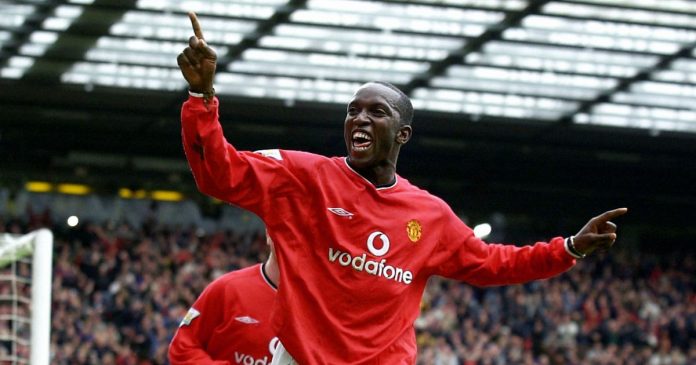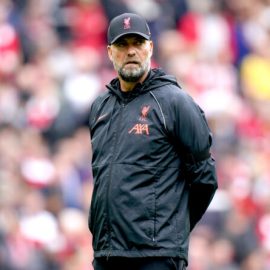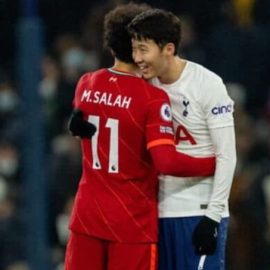As Manchester United’s rout of Wigan signalled the end of the 2009 and the start of a yet unnamed new decade, the signs on the horizon raise questions as to the future of English football over the next 10 years? Can the growth and success of the noughties be replicated or do a plethora of social, political and financial factors mean that English football has reached its pinnacle?
The first decade of the new millennium affectionately known as the ‘noughties’ was hugely successful for English football, the rejuvenation of the sport following the launch of the Premier League in the 90’s continued into the new millennia; with match attendances, television audiences and club honours reaching unprecedented levels.
This period was graced by some of the greatest players in the world including foreign imports Henry, Ronaldo and Zola and patriots such as Rooney, Terry, Gerrard, Lampard, and Rooney. These icons were watched by global audiences in their millions as the league earned the unofficial title ‘the greatest league in the world’.
There seem to be unsettling signs on the horizon of English Football as the recession, foreign ownership and UEFA regulation rear their ugly heads and threaten the future of the league.
Is the Foreign Ownership Bubble About to Burst?
The influx of foreign owners across all levels of the game has had a mixed impact with some success and a plethora of failure resulting in unsustainable expenditure, insatiable performance demands, asset dependant debt and general instability. Two of the historical powerhouses of English football now find themselves saddled with unpopular foreign owners who have ridden the clubs with external debt that even threatens the competitively of the football empire that is Manchester United.
The Chelsea/Abramovich marriage can be argued as a success story, even if it will not form the groundwork for the ‘Foreign Football Owners Handbook for Beginners’. A chance flight over Stamford Bridge resulted in the club being bought by a cash rich and seemingly loyal owner willing to invest in the long term future of the club underwriting huge debts in the process to propel the club forward.
Other clubs have not been so lucky the dream story and optimism that stalked a post takeover Nott’s County has melted away as motives become clouded and the investment promises fail to materialise, the club faces an unknown future with existence re-emerging as a legitimate primary objective for those following the world’s oldest league club.
In a similar situation to Nott’s County, Portsmouth are currently balancing the memories of FA Cup victory against the imminent danger that their club will simply cease to exist due to the fall out of foreign ownership, short term thinking and mismanagement. A seeming succession of owners have entered Fratton Park promising to make the dark clouds go away but as winding up orders and administration loom, only a minor miracle seems to be the answers to Portsmouth’s woes.
Then there is the impatience of cash rich owners keen to see immediate returns on their investment on the pitch. QPR may be owned by men with unfathomable wealth however the club has welcomed 12 managers since 2006 and not looked remotely likely to secure Premier League football since the arrival of Bernie Ecclestone and the always controversial Flavio Briatore in 2007
Meanwhile in the top division Manchester City have started their assault on the upper echelons of the Premier League relatively well, supported by the oilmen of Abu Dhabi the future looks bright. Yet this was not enough to save Mark Hughes from the axe and although the jury is still out for qualification for the Champions League this season, the coming years may yet yield a sustained assault on league and European glory bucking the apocalyptic stories described above.
It is not all doom and gloom though, the work of Randy Lerner has put the smiles back on the faces of everyone at Villa Park, operating under controlled financial and playing expectations the club has kept its community feel whilst chasing success. Martin O’Neil has put together a well constructed squad that can have a real crack at usurping Liverpool in England’s ‘big four’ showing how foreign ownership does not have to be all about short term boom or bust.
Unfortunately this success story like the others is counterbalanced by at least two examples of failing foreign ownership experiments; the Glazers, took the reins at Old Trafford under a cloud of controversy and protest, having loaded the club with artificial debt this now threatens to force the club to downsize its transfer ambitions with wild rumours of asset sell-offs both on and off the pitch. Just 30 miles away Gillette and Hicks bicker and fight at the controls of Liverpool FC leading to a period of stagnation and mediocrity. Debt is like Manchester United a huge factor at Anfield with the playing staff budget under threat. With Liverpool battling to secure even Champions League football next season there is the very real threat that the gems in the Liverpool crown Steven Gerrard and Fernando Torres may be sold to compensate for the resulting lost revenue.
Foreign ownership is not all sweetness and light and this bubble looks set to well and truly burst in the coming years affecting calibre of players that may be at our top clubs, affecting the games reputation and allowing uncertainty to reign.
Will even the Top Clubs battle for their existence?
In an effort to compete and attract the top names a football financial arms race means that today even average players attract wages that would have been unimaginable even 15 years ago; at the top of the league the most talented players use the increase in football revenues, agents and the limited English talent pool to command more money in a day than the average English worker can earn in a year.
It is not just the audiences that cannot afford to keep up with these wage demands, the start of the noughties saw the demise of Leeds United and there are now many more clubs across the football pyramid who are creaking under the financial pressures of competing in English football, all this despite exponentially rising revenues.
The recession is not yet over and whilst it has heralded talk of ‘a period of austerity’ in the U.K economy this has not yet been transferred to the football financial bubble that continues to inflate. Fans may be tightening their belts but this has not stopped the insatiable financial expenditure of our clubs. The recession coupled with a 50% tax rate and an abysmal exchange rate are affecting the ability of English clubs to compete particulary against their deep pocketed European rivals.
How long is it that top talent such as Fernando Torres, Wayne Rooney and Cesc Fabregas will be lured away from England for warmer climes and higher wages on the continent, English football is in danger of a resource drain that will lead to Spain regaining the title as the ‘best league in the world’.
Will Platini have his Day?
The administration of European football has looked jealously at the success of English football both on and off the pitch in recent years; an all English Champions League final in 2008 was the pinnacle of English domination of Europe which also meant that from 2005 the Premier League was represented in each final until the end of the decade.
Tapping up, youth poaching and foreign ownership have become issues of continental significance with English clubs under heavy suspicion, the fear for the new decade must be continued legislation from Europe directly or indirectly impacting upon factors such as freedom of movement and trade which helped the Premier League establish its worldwide dominance.
UEFA have attempted to introduce competition rules to negate the impact of the spending power of European clubs buying foreign players, much maligned in Blighty it was ironically European law that thwarted the controversial 6+5 proposal. However UEFA have pushed forward with a diluted system which encourages youth rather than punishing nationality. The ‘A’ and ‘B’ list system makes foreign players especially those not considered ‘untouchable’ an expensive strategic commodity whist the ‘B’ list makes young players important on a scale they have never been before, particularly when injuries start to take their toll and thin the number of available ‘A’ list players
The European bureaucratic machine is potentially a threat to English football in the coming years eccentric proposals are freely circulated seemingly testing the limits of acceptability. Clubs are under threat of increased regulation from UEFA in areas including financial aspects such as debt, transfer spending and wage expenditure. Whilst these factors are important issues which must be addressed I would like to throw doubt on the concept that a centralised bureaucratic body can provide solutions across a widely varying socio-economic footballing region.
The intrusions for the coming decade have as yet to be accurately defined however such regulation could change the face of English football in the same way as the foundation of the Premier League or the Bosman ruling. It has the potential to impact upon the way in which clubs do business and compete on both a national and European level. Only time will tell if such measures will be beneficial to English football, however I have yet to meet an English football fan who has faith in the European and World governing bodies and their ability to be even handed in their actions.
This article may appear to be full of doom and gloom; however it is difficult to appreciate just how good the first 10 years of this century were. As football fans we were well and truly spoilt and it is difficult to think of a way which the new decade can top the last.
More teams competing for the top prizes is one obvious way, and bizarrely the plans/consequences of many of the implications of the factors above that I have denounced may indeed spawn a more competitive league. This season bares this out in some regards; Chelsea live under the threat of a transfer ban, Manchester United and Liverpool looking less than impressive with the latter fading beyond recognition. Arsenal are back in the title mix and Tottenham, Manchester City and Aston Villa show potential to really upset the applecart.
With the national teams ‘golden generation’ reaching their swansong the financial pressure on English football threatens to deflate the progress and growth of the Premier League and it is easy to think I am saying that the bubble is about to burst altogether but let’s not forget that the English game is still watched by a worldwide fan base turning up and tuning in to watch some of the most talented players in the world.
I therefore end the article with a half glass full attitude and proffer that whilst the ‘noughties’ may be impossible to live up to, II urge you not to fret as much as I obviously have and enjoy the glittering spectacle football on display in the 2009-2010 season and beyond.
The noughties were most certainly a golden age for English football but only time will tell if this ‘golden age’ has passed or whether its greatness will be surpassed during a new decade that for many starts full of uncertainty, doubt and fear, don’t you just love the English winter?
Add Sportslens to your Google News Feed!






